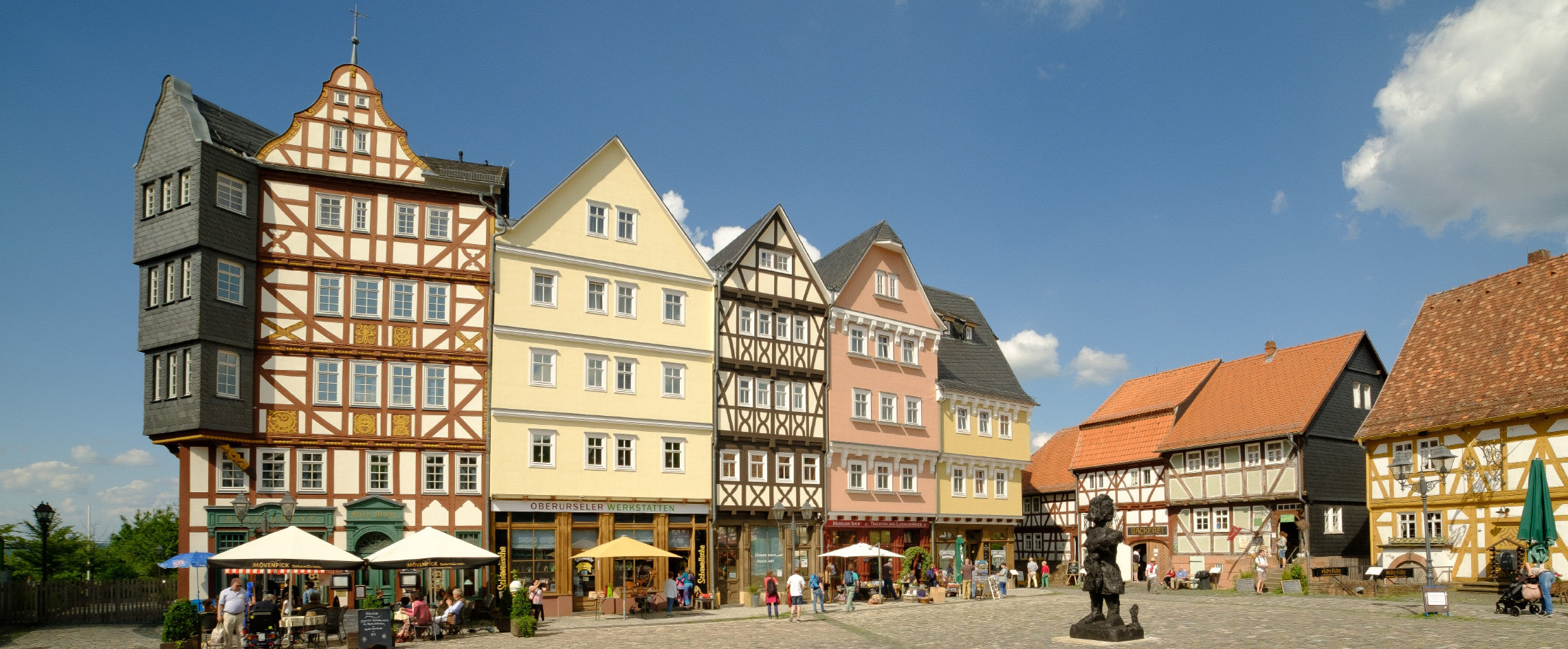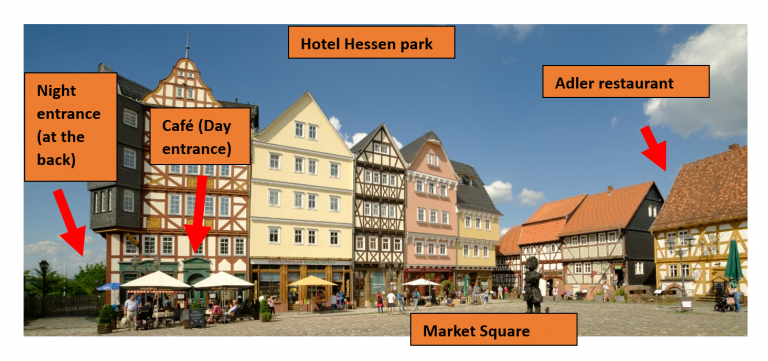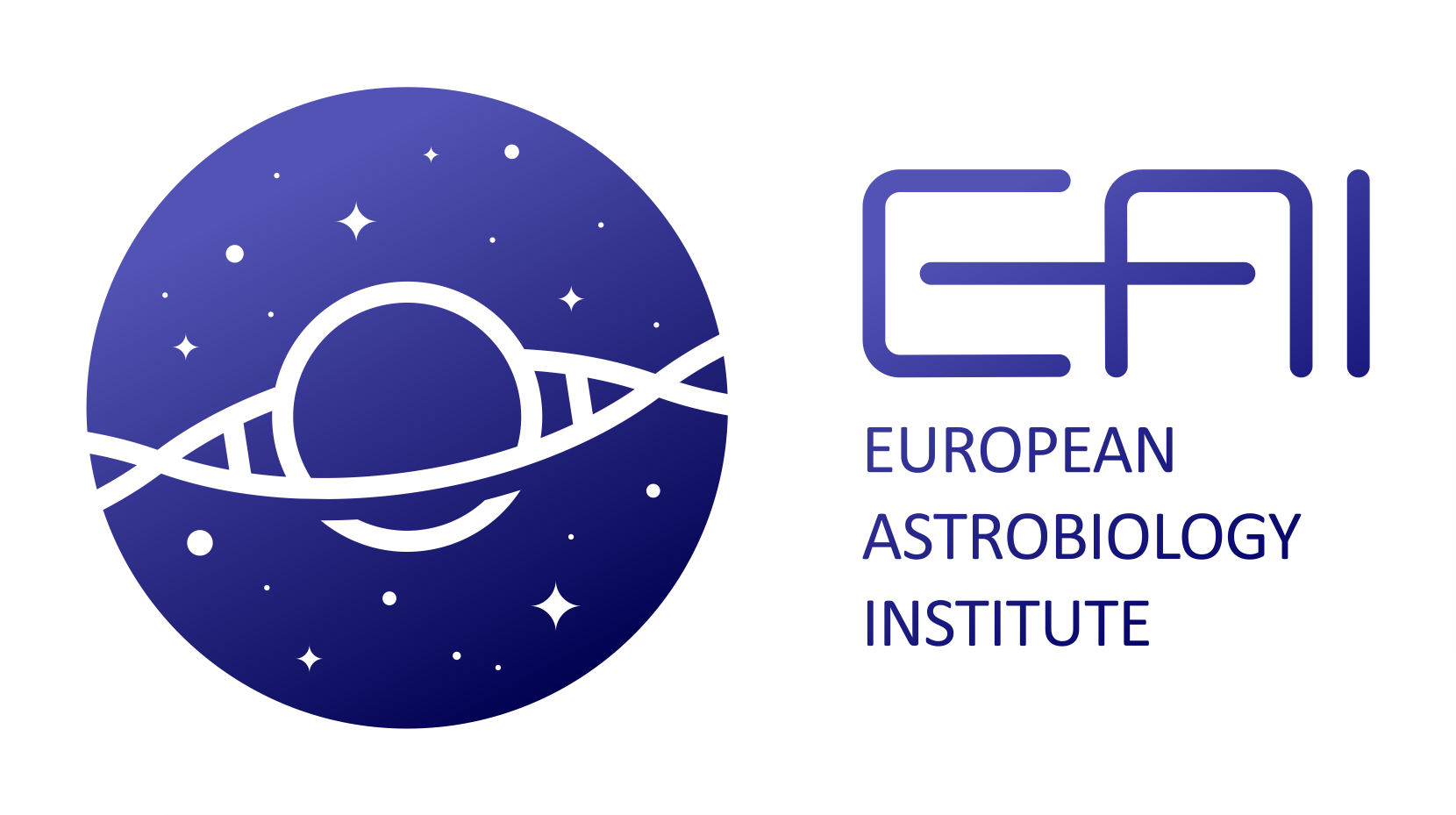
About the General Assembly
To join virtually , use the following link:
The Programme
Please find the preliminary schedule as a .pdf file following the links. This version is still subject to possible minor changes during the next days.
The different Working Groups have identified several key subjects inside its area which it should have a special focus on for the next 2-3 years. At the General Assembly those subjects will be discussed in detail. About half a day of the General Assembly will be devoted to each Working Group to discuss these themes in detail.
These sessions will not only contain scientific talks but also ample times for discussions. The detailed layout is as follows:
- There will be one keynote speaker per session (35 minutes + 10 minutes for discussion) for giving an overview of the the-of the-art in the subject.
- These keynote speeches will be introduced by an introductory talk (25 minutes) with 20 minutes for discussion afterwards.
- Furthermore there will be short talks present past research highlights in the field of the Working Group (12 minutes plus 3 minutes discussion). We especially encourage students and early career scientists to submit abstracts. Also
presenting a poster session is included. If you want to present a talk or a poster please submit an abstract. - Each half day will be rounded off by a general discussion.
The following themes have been scheduled for the sessions devoted to the different Working groups (the list will be completed):
PLes
- Formation and Evolution of Planetary Systems and Detection of Habitable Worlds
- Connection between a planetary system and its galactic environment: What kind of large-scale, astrophysical processes can influence habitability in planetary systems?
- From gas and dust to a star and its planetary system.
- Detection and characterization of exoplanets.
- Geosciences for understanding habitability
- Planetary atmospheres and fundamental processes in climate dynamics.
- Life and habitability in the Solar System: Assessing the present and past habitability potential of Solar System objects.
- Case studies: from the interstellar environment to planetary systems.
- The Pathway to Complexity: From Simple Molecules to First Life
- Complex organic molecules in the ISM: From Molecular Clouds to Protoplanetary Disks
- Asteroids, Comets, and Meteorites: Inheritance, Reprocessing, Synthesis, and delivery of complex molecules
- Chemistry on the early Earth, Mars, and other rocky bodies
- Complex chemistry in outer solar system bodies
- Coupling of compartment, metabolism, and heritable information in evolutionary systems
- Planetary Environments and Habitability
- Venus and Earth: divergent twins
- Icy moons high priority targets for habitable environments
- Mars Underground: the longest lived Martian habitable environment?
- Evolution and Traces of Early Life and Life under Extreme Conditions
- Evolution of photosynthesis
- Origin, Evolution, Ecology and traces of subsurface life
- Origin, Evolution, Ecology and traces of anaerobic life
- Traces of Early and Extinct Life
- Molecular mechanisms of adaptation of extremophiles to extreme conditions
- Biosignatures and Detection of extinct and extant life
- Biosignatures and Detection of extinct and extant life
- Mars-related biosignatures and their detection
- Icy Moon/Icy Ocean worlds-related biosignatures and their detection
- Biosignatures and Detection on Exoplanets
- Planetary Protection and right ways for biosignature detection protocols as well as ethic and philosophical issues
- Historical, Philosophical, Societal and Ethical Issues in Astrobiology
- False positive and false negative evidence in astrobiology
- Legal status of extraterrestrial life
Speakers
The following speakers have agreed to give introductory and keynote talks:
Mickael Baque, German Aerospace Centre, Germany
Alexandre Calvo, Stockholm University, Sweden
Tanai Cardona, Queen Mary University of London, UK
Nathalie Carrasco,University of Versailles-Saint-Quentin-en-Yvelines, France
Teresa Fornaro, INAF, Italy
Adam Frank, Rochester University, USA
Chaitanya Gokhale, University of Würzburg, Germany
José Eduardo González-Pastor, Centro de Astrobiología, Spain
Sanjeev Gupta, Imperial College, UK
Keyron Hickman-Lewis, UK
Brooke Johnson, University of Liège, Belgium
Cara Magnabosco, ETH Zürich, Switzerland
Giuseppe Murante, INAF, Italy
Julia Maia, German Aerospace Centre, Germany
Olivier Mousis, Université Aix-Marseille, France
Erik Persson, Lund University, Sweden
Alexey Potapov, University of Jena, Germany
Didier Queloz, ETH Zürich, Switzerland
Dimitry Semenov, MPIA, Germany
Riccardo Urso, INAF, Italy
The Venue
The venue will be at the Landhotel zum Hessenpark at the Hessenpark Open Air Museum. The address is:
Landhotel Zum Hessenpark
Laubweg 1
61267 Neu-Anspach
Phone +49-(0) 6081 577 6280
Email landhotel@hepa-gastro.de
Presentations
Presentations will be held in the “Landgraf Ludwig” room on the first floor of the “Landhotel zum Hessenpark”.
Accomodation
All rooms, both double and single, as well as our handicapped accessible double room, our family room and the wedding room are equally equipped with:
- contemporary box spring beds with pocket spring mattresses
- a choice of pillows with Evolon protective covers
- allergy-friendly bedding
- free Wi-Fi
- flat screen TV
- Coffee machine
- room safe and underfloor heating
The bathrooms are equipped with a floor-to-ceiling shower, hairdryer, vanity mirror and heated mirror.
The venue is located at the Hessenpark Open Air Museum. Reduced tickets for the museum can be bought at the front desk of the hotel.
Participants for the General Assembly must book the rooms for themselves. The price for a single room is EUR 119,- per person per night. The price for the daily conference attendance is EUR 89,- per day. This includes
- two coffee breaks
- two-course lunch with two main courses
- mineral water and apple juice throughout the meeting
Please book the daily fee directly with the hotel via email or phone mentioning “EAI General Assembly” (see coordinates above) . Deadline for room booking is 15 April 2024. If you book later, then rooms cannot be guaranteed. You might be asked to give your credit card details, please do so only via phone. Please note that cancellation fees will be charged for cancellations after 15th April both for rooms and conference packages.
Unfortunately the conference hotel is fully booked. But we have two alternatives:
- B&B Hotel Bad Homburg: see https://europeanastrobiology.eu/2024-eai-general-assembly/ for instructions)
- Bad Homburg Maritim Hotels also has some rooms free. https://www.maritim.com/en/hotels/germany/hotel-bad-homburg/hotel-overview, cheaper at Booking.com. We will organise a shuttle transport n the morning and evening.
Delegates to the General Assembly, invited speakers and holders of bursaries for students and Early career scientists will be refunded for the accommodation costs (up to EUR 120,- per night betwen3rd and 7th June) and the daily fee.
Please be informed that the number of rooms at the venue is limited so early room booking is advisable.


Travel
The venue is easy to reach. Please fill in your arrival time in the registration form. For late comers we can organise a taxi transportation if needed.
By air
The best possibility is to go to Frankfurt am Main airport (IATA code: FRA). It is one of the major hubs in Europe with plenty of direct flights to and from it.
For public transport connections from Frankfurt Airport use the travel information on the website of the German Railways. On this page, please fill in “FRA Frankfurt Airport” under “From” and “Anspach Hessenpark, Neu-Anspach” under “To”. Connections are frequent (once every half hour during the day).
At Frankfurt Airport, please go to the regional railway station and take one suburban S8 or S9 trains to the lower level of Frankfurt Main Station (Frankfurt(Main) Hauptbahnhof (tief)) or Frankfurt Hbf (tief)). Arriving there, take the suburban train S5 to Bad Homburg.
From there, take either a taxi (EUR 35,- recommended, taxis can be ordered or are available in front of the railway station) or the local train RB15 in the direction “Brandoberndorf”. Depending on your connection (check at www. bahn.de/en) exit at Wehrheim or Neu Anspach. From Wehrheim to Neu- Anspach take Bus 63 to Anspach Hessenpark. Usually, those buses go between Neu-Anspach and Wehrheim via Hessenpark. Travel time is about 1hour 30 from the airport to Hessenpark.
Arriving at the bus stop, walk forward for 10 metres and turn sharp right into the museum. You do not have to pay entrance fee to get to the hotel, just walk on ignoring the ticket office. Walk down a cobbled road to a big marketplace. On the lower (northern) side of the marketplace you see a Café “Marktplatz 11 on the left of a timber framed-style building block”. During opening hours you can access the hotel front desk through the café. At other times: Walk past the building block café to the left and walk through a gate to the back of the building block. The hotel entrance is at the back of the building block.
Note: There is also another airport in Frankfurt, namely Frankfurt Hahn (IATA code: HHN). Cheap airlines fly there, but it is quite remote from Frankfurt, and travel involves a 2-hour bus ride to Frankfurt(Main) Railway Station. Information about bus connections can be found here.
Also note: If you want to save time, take a taxi from Bad Homburg railway station to Hotel Hessenpark. Costs around EUR 35,-, see below for details
By train
Most connections will arrive at Frankfurt(Main) Railway station, in German “Frankfurt(Main) Hauptbahnhof” on schedules often abbreviated Frankfurt Hbf. At Frankfurt Main Station go down to the suburban Railway station (marked by a green “S”) and named “Frankfurt Hbf (tief)”. Arriving there, take the suburban train S5 to Bad Homburg.
From there, take either a taxi (EUR 35,- recommended, taxis can be ordered or are available in front of the railway station) or the the local train RB15 in the direction “Brandoberndorf”. Depending on your connection (check at www. bahn.de/en) exit at Wehrheim or Neu Anspach. From Wehrheim to Neu- Anspach take Bus 63 to Anspach Hessenpark. Travel time about 1 hour from Frankfurt Main Railway Station to Hessenpark.
Arriving at the bus stop, walk forward for 10 metres and turn sharp right into the museum. You do not have to pay entrance fee to get to the hotel, just walk on ignoring the ticket office. Walk down a cobbled road to a big marketplace. On the lower (northern) side of the marketplace you see a Café “Marktplatz 11 on the left of a timber framed-style building block”. During opening hours you can access the hotel front desk through the café. At other times: Walk past the building block café to the left and walk through a gate to the back of the building block. The hotel entrance is at the back of the building block.
By taxi
Taxi Böber offers transfers between Frankfurt Flughafen or Main Railway Station for EUR 75,- (travel time about 40 minutes) or from Bad Homburg Railway Station for EUR 35,- (travel time 20 minutes). Might be an option for people travelling in a group. Contact: Phone: ++49-6081-8845, Mobile phone: ++49-171 6465464, Fax ++49-6081-9855243, e-Mail: info@taxi-boeber.de Other options are Taxi Stern (++49-6081-94 66 001), www.taxistern.com, Taxi- Anton (phone: ++49-6081-577853, Fax: ++49-0173-4003617, e-Mail: taxi.anton@web.de. Please inform the taxi beforehand if you want to pay by credit card.
By Car
You can simply put in Landhotel “Zum Hessenpark” in Google Maps. Directions:
From the North
Take motorway A5 direction Frankfurt to the exit “Friedberg” (exit number 16). Turn right on B455 direction Friedrichsdorf. After 800 meters turn, just before a traffic light, right onto L3041 (direction ”Usingen” (not optimally signposted. Stay on this road for 10 km, then turn left (brown sign “Hessenpark”). After 600m enter the museum at Gate 7. There is a gate where you have to ring a bell and the hotel will open you. Parking is provide free of charge.
From the South
From Frankfurter Kreuz take motorway A5 direction Hannover/Kassel/Dortmund to the exit “Friedberg” (exit number 16). Turn right on B455 direction Friedrichsdorf. After 800 meters turn, just before a traffic light right onto L3041 (direction”Usingen” (not optimally signposted. Stay on this road for 10 km, then turn left (brown sign “Hessenpark”). After 600m enter the museum at Gate 7. There is a gate in the entrance road where you have to ring a bell and the hotel will open you. Parking is providef free of charge.

Registration
Registration is now closed.
Abstract Submission
Abstract submission is now closed.
Contact
For all enquiries regarding the Scientific Programme and the Business Meeting please contact Wolf Geppert (wgeppert@fysik.su.se, phone ++46-8-723691155). For questions regarding the refunds for delegates contact Mariette Vandermersch from ESF (mvandermersch@esf.org). For booking of conference packages and accommodation contacr the venue (Phone: +49-(0)6081 577 6280, email: landhotel@hepa-gastro.de).
